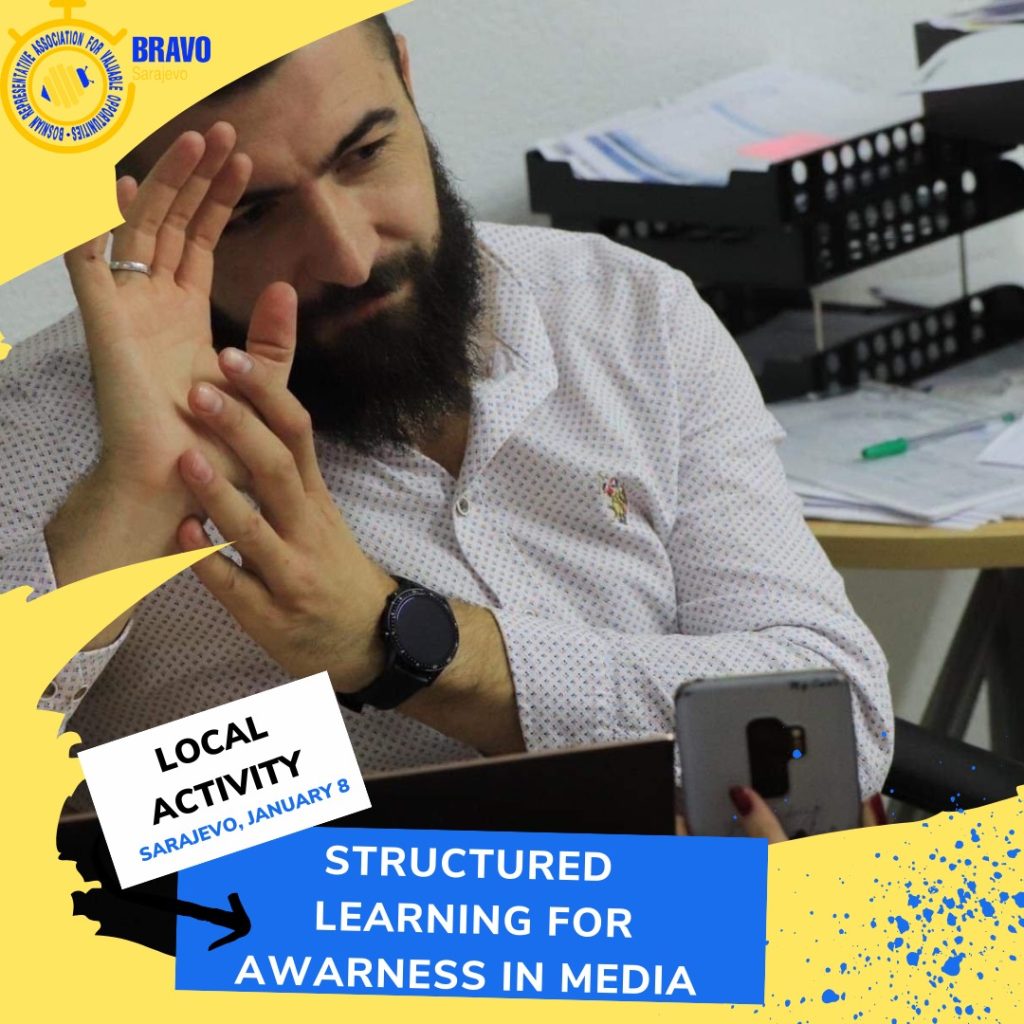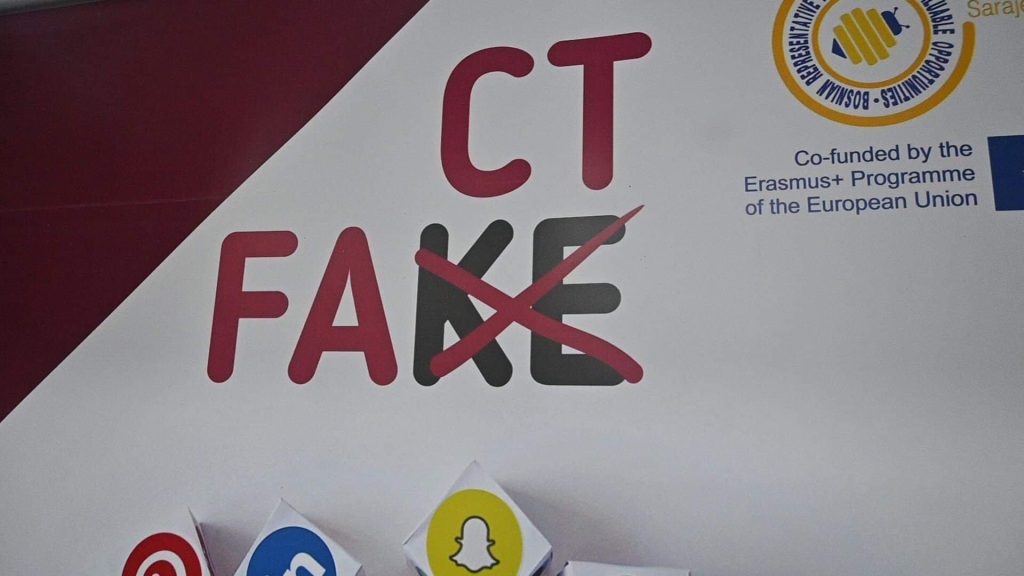#BRAVO in Action - SLAM, Local Activities

We live in a time when information, whether accurate or not, is sent around the world at the touch of a button. The information environment is huge and complicated. Misinformation (unintentionally false information) and disinformation (intentionally false information) play a significant role in influencing public opinion on vital topics such as politics, science, health and current events.
Aware of this, as part of the dissemination activities for the project Structured Learning for Awareness in Media – SLAM, BRAVO volunteers organized one of the local activities in Bosnia and Herzegovina on January 8, where their organization operates.
The event hosted participants in both ways: online and offline.
It was the awareness-raising event where participants learned about fake news, false information, differences between the two, and their consequences on both the opinion creation and society in general.
The participants had a greater understanding of how misleading information emerges and affects society in the twenty-first century as a result of this event. They’ve discovered how it can affect how people view and interact with others who have different personal opinions, life experiences, and cultural backgrounds.
Participants also learned how fake news and false information are spread on social media, and how to combat them. They discussed clickbait, shocking news headlines, fake photos and videos and much more.


The first characteristics or indicators of “fake news” were discovered by a meaning analysis of descriptions found in academic journals, trade publications, newspapers, and magazines, among other places. These characteristics are broken down into message or linguistic features, source and intention features, structural features, and network aspects, and can be beneficial when evaluating online content.


Structured Learning for Awareness in Media” (SLAM) aims at enhancing young people’s awareness and critical thinking on the role of Mass Media as a challenge and precondition for more inclusive societies towards migrants and refugees.
The Council of Europe’s Report “Media Regulatory Authorities and Hate Speech” (2018) underlines the historical significance of media in enticing and feeding the climate of hatred and violence characterizing West Balkan’s turbulent past. The Balkans are still a primary example of media consciously or even deliberately using hate speech for sensationalistic purposes, thereby supporting it and causing its recurrence and reinforcement at the societal level.
Bosnia and Herzegovina has recently taken a foremost importance as a transit node for migrants and refugees seeking entrance in EU territory, a trend which the UNHCR (2018) recognized as exponentially increasing in 2018, from the 198 arrivals in December 2017 to the 666 registered in the peak month of March 2018. The strain posed on the local relief system by this surge has contributed to a growing sense of local unrest and discontent, which national mass media have so far been able to answer by providing the public with awareness and understanding circa the phenomenon, in many instances providing an amplifier to internal currents of distrust, hate and stereotyping.
From the European perspective, significant indications might be extracted from analysing media coverage about the reception and integration of migrants/refugees.
#BRAVO #BRAVOBIH #MAKETHEWORLDWONDER #ERASMUSPLUS
#BRAVOSLAM #SLAM #FAKENEWS


